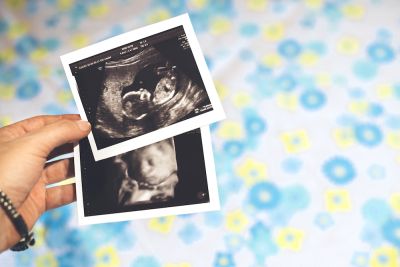Pregnancy resource centers are not 'fake' clinics
Critics of pregnancy resource centers (PRCs) often claim they are “fake” clinics designed to mislead women. While it might make for an easy soundbite, these accusations are false.

In fact, PRCs offer a wealth of vital support to women and most offer certain medical services at little to no cost. Care Net, a pregnancy center network, released a new report in August that found 1,100 of its affiliated pregnancy resource centers saved their communities more than $84 million in 2019. This includes health and medical services like pregnancy tests and ultrasounds. And that is just the Care Net affiliated PRCs, there are close to 3,000 PRCs in the United States, meaning the savings could effectively be doubled.
So why the “fake” clinic claims?
Simply put, it is a failure to understand the PRC movement. There are two types of PRCS, medical and non-medical. Here’s how they work.
Non-Medical PRCs and What They Offer
Non-medical PRCs offer pregnancy tests and counseling to their clients. Once a woman takes a self-administered pregnancy test, a client advocate is available for counseling with the woman.
Together they explore the options a woman has when facing an unplanned pregnancy — parenting, adoption, or abortion.
In addition to testing and counseling, non-medical PRCs also provide parenting classes and other practical instruction to parents. “Earn While You Learn” is a popular curriculum used by PRCs to teach new and expectant moms and dads valuable parenting skills. These centers typically also have resources and supplies available for new parents like diapers, baby clothing, and formula; all provided at no cost.
Care Net PRCs provided baby supplies to close to 150,000 clients in 2019 and 81,000 received parenting education.
Medical PRCs and Life-Saving Care
In addition to everything a non-medical pregnancy resource center provides, a medical PRC employs registered nurses or ultrasound technicians who are trained to perform sonograms under the guidance of a licensed medical director.
The Charlotte Lozier Institute, a national pro-life organization, conducted a research report on PRCs and found that 2,752 center locations nationwide provide vital services including medical services and more than seven in 10 PRC locations offer free ultrasounds (up 24 percent since 2010).
All medical PRCs affiliated with the National Institute of Family and Life Advocates (NIFLA) comply with national and state medical standards and licensing requirements. These PRCs operate under the oversight of a medically licensed physician who ensures standards of medical excellence are met. These centers can also be referred to as a pregnancy resource clinic because they have licensed clinical staff including nurses and sonographers. Their staff may include licensed counselors and social workers with additional services to assist women in overcoming difficult life circumstances.
“Any PRC that is a medical clinic has a physician over them, and the physician’s license is at stake. [We] follow the national board guidelines. Each state has different requirements and each clinic has to abide by those state rules as well,” explained Dr. Karysse Trandem, an OB/GYN and the medical director of the Pregnancy Centers of Southwest Florida.
“We have protocols and procedures for the nursing staff, the ultrasound and sonography staff, and myself,” Dr. Trandem continued. “Whether it’s just a pregnancy test, a sexually transmitted infection screen, an ultrasound or counseling, we comply with the national standard of care.*”
Amy’s Story
For women like Amy,** free PRC services changed her life. At 21 years old she found herself pregnant with her mind set on abortion. But in order to obtain an abortion she had to get an ultrasound. She saw that her local pregnancy resource center was offering free ultrasounds so she went to their office.
She’d had an abortion several years ago and felt that abortion was her best option again. She told the client advocate that she still wanted to "live life" and wasn’t ready financially for a child.
They spoke for a long time, discussing her options, what she wanted to do and whether or not she had support from anyone in her life.
"No one did this with me when I had my abortion before,” Amy said. “I never saw that ultrasound or even knew how far along I was. They just told me I was early".
After meeting with the center’s staff Amy started her ultrasound. As soon as she could see the screen she sat up on the exam table.
"That's a life," she said. “I can’t believe at seven weeks a baby would have a heartbeat.”
She stared in amazement at the ultrasound images on the screen, saying, "This changes everything.”
Essential Services and Savings
So what’s the bottom line?
Pregnancy resource centers not only save their communities thousands of dollars each year, but they care about more than just the baby. In fact, they work hard to give women the information, resources and care they need to feel empowered to choose life. Not just choose life, but thrive. With access to community resources, parenting classes, baby supplies and a staff that will walk with them every step of the way.
* The standard of care is based on the direction and standards of:
American College of Obstetricians and Gynecologists
Centers for Disease Control
Association of Women’s Health, Obstetrics, and Neonatal Nurses
Nurse Practice Act
**Name changed to protect identity
Brittany Smith is the Senior News Writer for Save the Storks. She covers pro-life news and stories. Save the Storks' partners with pregnancy resource centers across the United States to empower women with choice during pregnancy. In addition to Stork Buses, Storks is helping to change hearts and minds with compelling social media and awareness campaigns, unique events and support to PRCs who provide outreach programs to mothers and fathers facing an unplanned pregnancy. To date, Save the Storks has put 59 Stork Buses on the road.




























